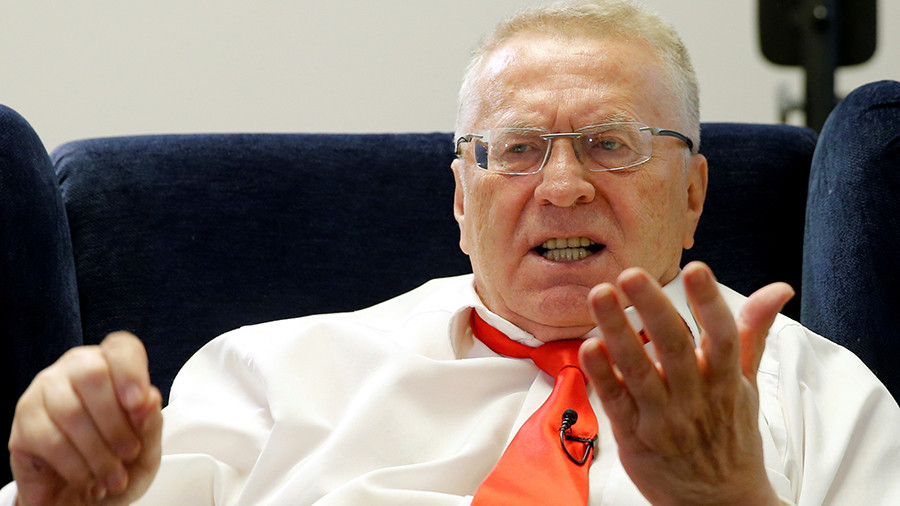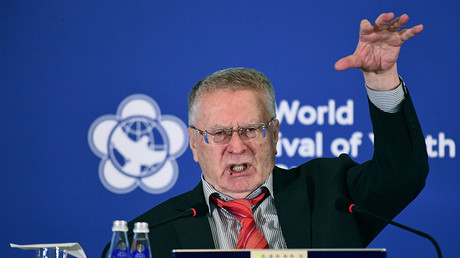Nationalist party leader vows radical cuts to parliament if elected president

In the program titled ‘100 steps: Time to make a powerful dash forward’, Zhirinovsky wrote that if he becomes president in 2018 he will completely dissolve the 170-seat Federation Council and bring the number of seats in the State Duma from the current 450 to just 200.
Other key steps mentioned in the program include setting a minimum wage of 20,000 rubles per month instead of the 9,489 rubles in the Labor Ministry’s plans for 2018 (about $345 and $160 at current rate). Zhirinovsky also promises to lift the moratorium on the death penalty, introduce exile and confiscation of a car as punishment for aggressive driving, grant citizenship to all ethnic Russians who request it and pass a special law on the protection of the Russian language.
Slashing the number of federal lawmakers is the first promise made by Zhirinovsky in the capacity of presidential hopeful. When he was re-elected as leader of the Liberal Democratic Party of Russia (LDPR) in February, he said that in his view the State Duma could do with just 300 MPs instead of 450.
“I think 300 will be enough, because a lot of them don’t even have time to speak. They just sit there in silence for five years,” he said.
Earlier this month, another Russian presidential hopeful, ex-socialite and journalist Ksenia Sobchak, proposed dissolving the State Duma altogether over alleged violations committed at past elections. She would then introduce radical changes to the country’s political system and make Russia a parliamentary republic.
The next Russian presidential elections are scheduled to take place on March 18 – on the anniversary of Crimea’s reunification with Russia. Apart from the abovementioned Zhirinovsky and Sobchak, the likely candidates in the race include the founder of the liberal Yabloko party, Grigory Yavlinsky, head of the Russian Communist Party Gennady Zyuganov, head of the Grand Freemason Lodge of Russia Andrey Bogdanov, and journalist and singer-songwriter Ekaterina Gordon.
President Vladimir Putin has not yet publicly announced his plans concerning the elections. Nor has the parliamentary majority United Russia party.










